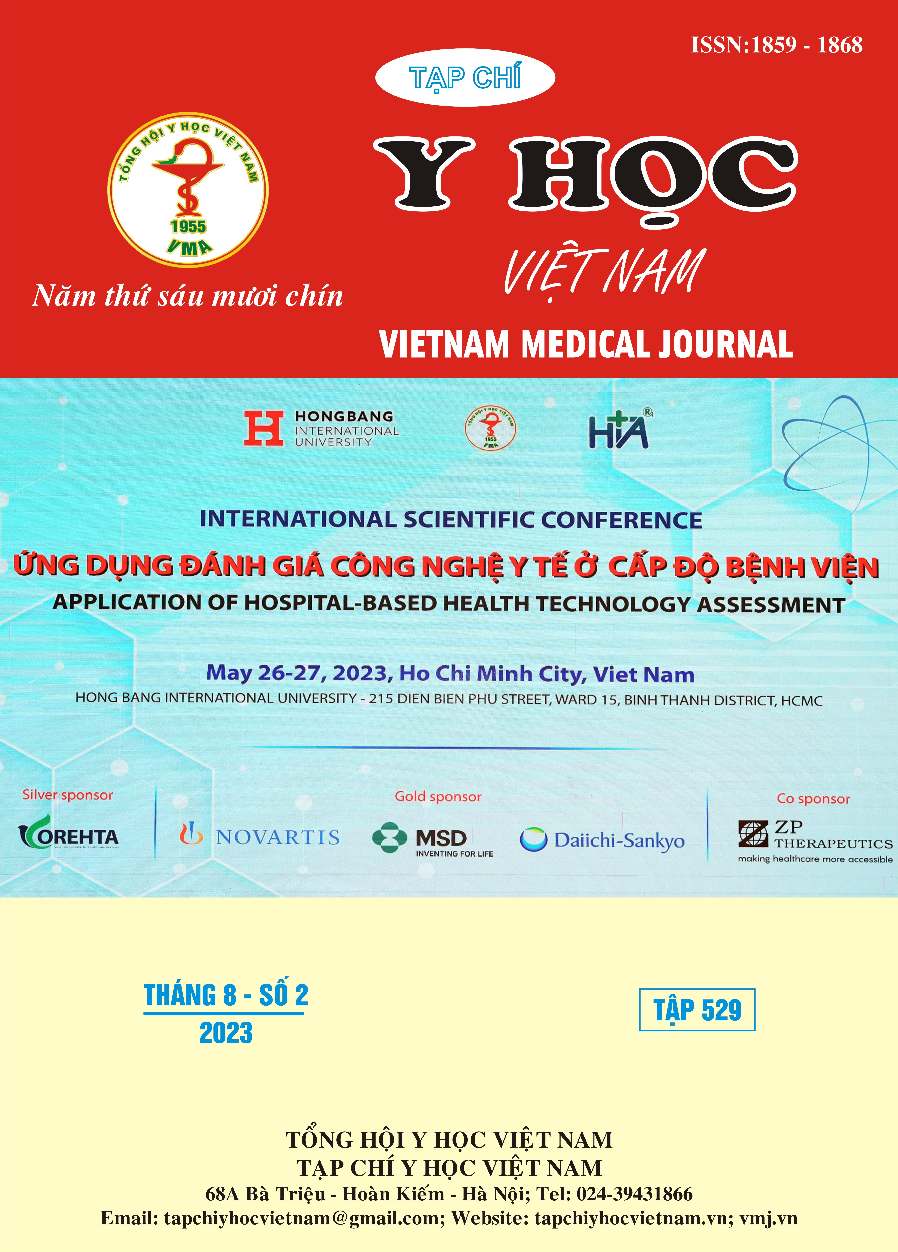EFFECTS OF NUTRITIONAL INTERVENTIONS ON TUBE-FEEDING PATIENTS AT DEPARTMENT OF INTENSIVE CARE – POISON CONTROL SAINT PAUL HOSPITAL
Main Article Content
Abstract
Objective: The study aimed to eValuate the effectiVeness of nutrition interVention and tolerance statement of patients receiVing tube feeding treated at the Department of IntensiVe Care – Poison Control, Saint Paul Hospital. Subjects and Methods: A
randomized controlled trial study was conducted on 36 patients receiVing tube feeding treated in the Department of IntensiVe Care – Poison Control. Assessments of the patient's nutritional status, dietary intake, and adVerse eVents impacting the patient's digestion were made. Results: After the nutritional interVention, there was an improVement in energy and protein in the patient's diet (protein increased from 0.7
± 0.2g/kg/day to 1.3 ± 0.1g/kg/day) day). Grade 2 adVerse eVents related to digestion when patients utilizing peptide formulations were constipation, diarrhea, and gastroesophageal reflux at a low rate (5.6%). Conclusion: The use of nutritional formulas containing peptides can haVe a positiVe impact on the nutritional status of patients
Article Details
Keywords
: interVention, tube-feeding, intensiVe care unit, Saint Paul
References
obserVational study. Indian J Anaesth. 2018;62(1):29-35. doi:10.4103/ija.IJA_513_17
2. Nguyễn TT, Nguyễn TTH, Trương VD, Nguyễn ĐP. Đánh giá tình trạng dinh dưỡng Và các yếu tố liên quan trên bệnh nhân nặng tại Khoa hồi sức truyền nhiễm Bệnh Viện Trung ương Quân đội 108. Tạp chí Khoa học Điều dưỡng. 2018;1(4):14-20. Accessed June 13, 2022. https://jns.Vn/index.php/journal/article/View/115
3. Singer P, Blaser AR, Berger MM, et al. ESPEN guideline on clinical nutrition in the intensiVe care unit. Clinical Nutrition. 2019;38(1):48-79. doi:10.1016/j.clnu.2018.08.037
4. Zhang L, Zhu X, He Y, Zhang G. Study on the Value of nasogastric tube nutrition nursing in critical patients with indwelling nasogastric tube. Am J Transl Res. 2021;13(8):9694-9700. Accessed May 29, 2023. https:// www.ncbi.nlm.nih.goV/pmc/articles/PMC8430057/
5. Vieira MMC, Santos VFN, Bottoni A, Morais TB. Nutritional and microbiological quality of commercial and homemade blenderized whole food enteral diets for home-based enteral nutritional therapy in adults. Clin Nutr. 2018; 37(1):177-181. doi:10.1016/j.clnu.2016.11.020
6. Nguyễn Thùy Linh, Hoàng Thị Hằng, Ma Ngọc Yến, et al. Tình trạng dinh dưỡng và đặc điểm nuÔi dưỡng qua ống thÔng dạ dày ở người bệnh hồi sức tích cực tại Bệnh Viện Điều trị người bệnh COVID-19. TCNCYH. 2022;157(9):44-54. doi:10.52852/tcncyh.V157i9.969
7. Seres DS, Ippolito PR. Pilot study eValuating the efficacy, tolerance and safety of a peptide- based enteral formula Versus a high protein enteral formula in multiple ICU settings (medical, surgical, cardiothoracic). Clin Nutr. 2017; 36(3):706-709. doi:10.1016/j.clnu.2016.04.016


